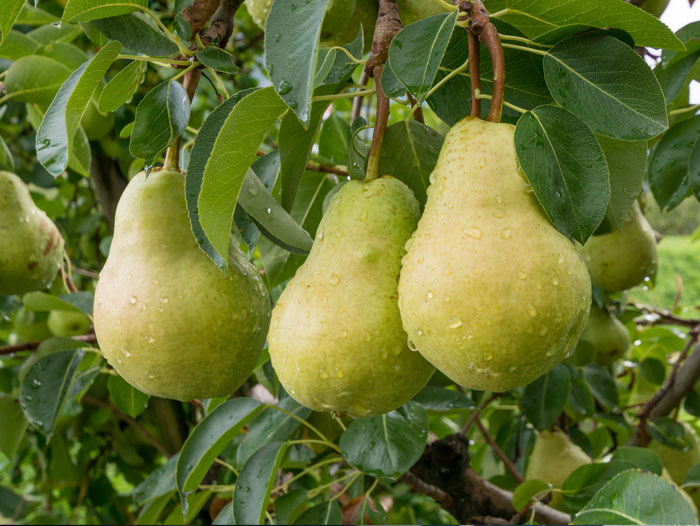California Pear Farmers Set to Begin Harvest in Early July
April 22, 2020 | 3 min to read

Sacramento, CA — As the nation’s food industry is working hard to keep food on our tables, California pear farmers are preparing to harvest a crop of fresh pears in early July.
“California pear harvest appears to be on a normal schedule this year after two years of late harvest timing,” said Matt Hemly of Greene and Hemly in Courtland. “We’ve seen pear category sales affected in recent years during July because of our late harvest. This year we expect to be picking Bartlett pears in the River District within the first weeks in July. Retailers will have no problem getting American grown pears into their stores this year.”
“We want to thank retailers and all of their employees for keeping our food supply moving during this difficult time,” said Richard Elliot of Stillwater Orchards. “As we move out of this pandemic, we hope that retailers will support local growers, families and communities to put America first.”
California pear growers are taking extra steps in the orchards and packing facilities to ensure a safe, healthy supply of fresh pears during this time.
“We employ 450 people in our farms and packing house,” explains Chiles Wilson, owner of Rivermaid Trading Company, based in Lodi, CA. “We want to make sure we can give them their jobs back this year. It’s not just about us as farmers but all the people we employ and their families.”
“Flavor is most important to consumers,” explains Pat Scully of Scully Packing in Lake County. “California pear farmers take care to pick pears at a point when they have plenty of sugar, and we never treat our pears with anti-ripening products like 1-MCP.”
1-MCP is a product that impedes fruit ripening. Producers in many growing regions use 1-MCP to extend a pear’s storage life. Unfortunately, a 1-MCP treated pear may not ever ripen properly. It may turn yellow and appear to be ripe but never soften. This disappoints consumers and prevents repeat sales.
“What we’ve found in repeated experiments in our lab is that pears treated with 1-MCP take as long as three weeks to ripen and, in fact, they may never get soft and juicy,” explains Dr. Beth Mitcham, a postharvest researcher at the University of California, Davis.
“We don’t believe that 1-MCP is a smart choice for pears like Bartletts that must ripen off the tree,” said Rivermaid Trading company’s Wilson. “We know 1-MCP inhibits the fruit’s ability to ripen, meaning no flavor and no softening. With the increased use over the past few years, we think there is a direct correlation to retail pear category decline.”
Because Bartlett pears are picked green off the tree, they ship well and will ripen naturally. Once a consumer brings them home, they will become a ripe juicy flavorful piece of fruit.
“We’re committed to producing pears that offer the best eating experience for our consumers,” said Hemly. “In early July, shoppers should begin seeing new crop Bartlett pears in-store grown by local farmers. Our California Pear Advisory Board representatives will soon be reaching out to retailers — even if it’s only virtually — to set up promotions for the new season. “
The California Pear Advisory Board is based in Sacramento, CA and represents all producers of pears in the state. More information about California pears, pear varieties and pear farmers can be found at www.calpear.com.
